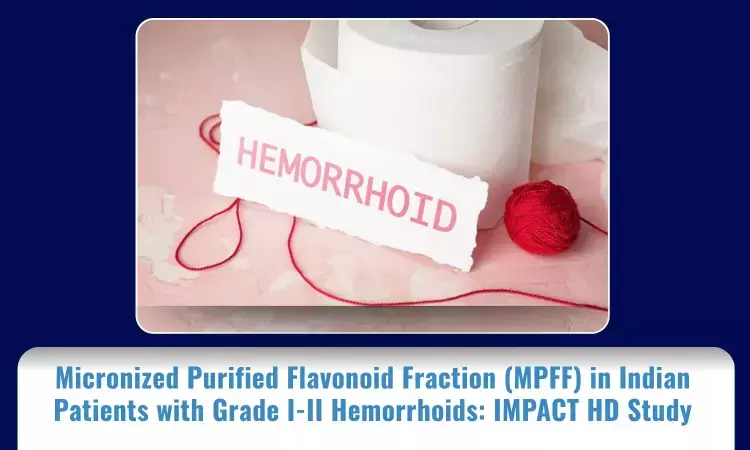- Home
- Medical news & Guidelines
- Anesthesiology
- Cardiology and CTVS
- Critical Care
- Dentistry
- Dermatology
- Diabetes and Endocrinology
- ENT
- Gastroenterology
- Medicine
- Nephrology
- Neurology
- Obstretics-Gynaecology
- Oncology
- Ophthalmology
- Orthopaedics
- Pediatrics-Neonatology
- Psychiatry
- Pulmonology
- Radiology
- Surgery
- Urology
- Laboratory Medicine
- Diet
- Nursing
- Paramedical
- Physiotherapy
- Health news
- Fact Check
- Bone Health Fact Check
- Brain Health Fact Check
- Cancer Related Fact Check
- Child Care Fact Check
- Dental and oral health fact check
- Diabetes and metabolic health fact check
- Diet and Nutrition Fact Check
- Eye and ENT Care Fact Check
- Fitness fact check
- Gut health fact check
- Heart health fact check
- Kidney health fact check
- Medical education fact check
- Men's health fact check
- Respiratory fact check
- Skin and hair care fact check
- Vaccine and Immunization fact check
- Women's health fact check
- AYUSH
- State News
- Andaman and Nicobar Islands
- Andhra Pradesh
- Arunachal Pradesh
- Assam
- Bihar
- Chandigarh
- Chattisgarh
- Dadra and Nagar Haveli
- Daman and Diu
- Delhi
- Goa
- Gujarat
- Haryana
- Himachal Pradesh
- Jammu & Kashmir
- Jharkhand
- Karnataka
- Kerala
- Ladakh
- Lakshadweep
- Madhya Pradesh
- Maharashtra
- Manipur
- Meghalaya
- Mizoram
- Nagaland
- Odisha
- Puducherry
- Punjab
- Rajasthan
- Sikkim
- Tamil Nadu
- Telangana
- Tripura
- Uttar Pradesh
- Uttrakhand
- West Bengal
- Medical Education
- Industry
Effect of Micronized Purified Flavonoid Fraction (MPFF) in Indian patients with Grade I-II Hemorrhoids: the IMPACT HD Study

A recently published IMPACT-HD (Integrating Proctoscopic Assessment With Patient Experience of Micronized Purified Flavonoid Fraction in Treatment of Grade I–II Hemorrhoids) study has shown effective improvements in clinical signs on proctoscopic assessment (redness, swelling, and bleeding) and in quality of life (QoL), following the administration of Micronized Purified Flavonoid Fraction (MPFF) in Indian patients with Grade I-II hemorrhoids.
These findings, published in the September 2025 issue of the Journal of Surgery, support MPFF as a safe, non-invasive first-line therapy for the management of Hemorrhoidal Disease (HD).
Hemorrhoidal disease (HD) is common and distressing anorectal condition, a frequent cause of patient visits to both primary care and specialist clinics, impacting their comfort, daily activities, and quality of life. The true incidence of HD is challenging to determine, as many affected individuals are reluctant to seek medical care and also hesitant to undergo invasive procedures or surgery. Micronized Purified Flavonoid Fraction (MPFF) offers a pharmacological approach that directly addresses the underlying pathophysiological pathway of HD and or adjunct to invasive interventions as well.
To evaluate the clinical efficacy and patient-reported outcomes of Micronised Purified Flavonoid Fraction (MPFF) in the management of early-grade hemorrhoids, an open-label, prospective, single-center, observational study was conducted, enrolling 12 adults (≥18 years) having Grade I–II hemorrhoids with acute rectal bleeding (<2 days), confirmed on proctoscopy. All participants received MPFF in the form of Daflon 1000 mg tablets. The dosing regimen was in accordance with standard prescribing practices for acute hemorrhoidal episodes: 3 tablets daily for the first four days, followed by 2 tablets daily for the subsequent three days. Based on the patient’s clinical response, treatment could be optionally continued at a dose of one tablet daily until Day 21, with assessments carried out at days 0, 3, 7, 10, 14, and 21 for both physician-reported clinical parameters on proctoscopy and patient reported Quality Of Life (QoL) scores.
The primary outcome was patient-reported QoL measured using HEMO-FISS-QoL score. Secondary outcomes were physician-reported clinical parameters like redness, swelling, bleeding, discharge, tenderness, prolapse, and overall improvement assessed using proctoscopy.
The findings from the study include:
Graph 1: Proctoscopic Examination: Change in Redness and Swelling till the End of the Study
2. Quality of life (QOL) Assessment (HEMO-FISS-QoL score): By Day 21, patients showed substantial improvements across all domains. Overall QoL score decreased from 45.51 ± 8.01 at baseline to 2.80 ± 1.84 at Day 21 (mean change −42.70 ± 7.57; p < 0.05), suggesting significant improvement in QoL.
Conclusion: MPFF administration was associated with a progressive reduction in proctoscopic inflammation and significant improvements in QoL. These findings suggest that MPFF may be a valuable adjunct in conservative management of HD, offering both objective mucosal healing and subjective symptomatic benefits in patients with Grade I-II hemorrhoids
Reference: Porwal A (2025) Integrating Proctoscopic Assessment With Patient Experience of Micronized Purified Flavonoid Fraction in Treatment of Grade I–II Hemorrhoids: the IMPACT-HD. J Surg 10: 11435 https://doi.org/10.29011/2575-9760.011435
BDS, MDS(orthodontics)
Dr. Garima Soni holds a BDS (Bachelor of Dental Surgery) from Government Dental College, Raipur, Chhattisgarh, and an MDS (Master of Dental Surgery) specializing in Orthodontics and Dentofacial Orthopedics from Maitri College of Dentistry and Research Centre. At medical dialogues she focuses on dental news and dental and medical fact checks against medical/dental mis/disinformation


